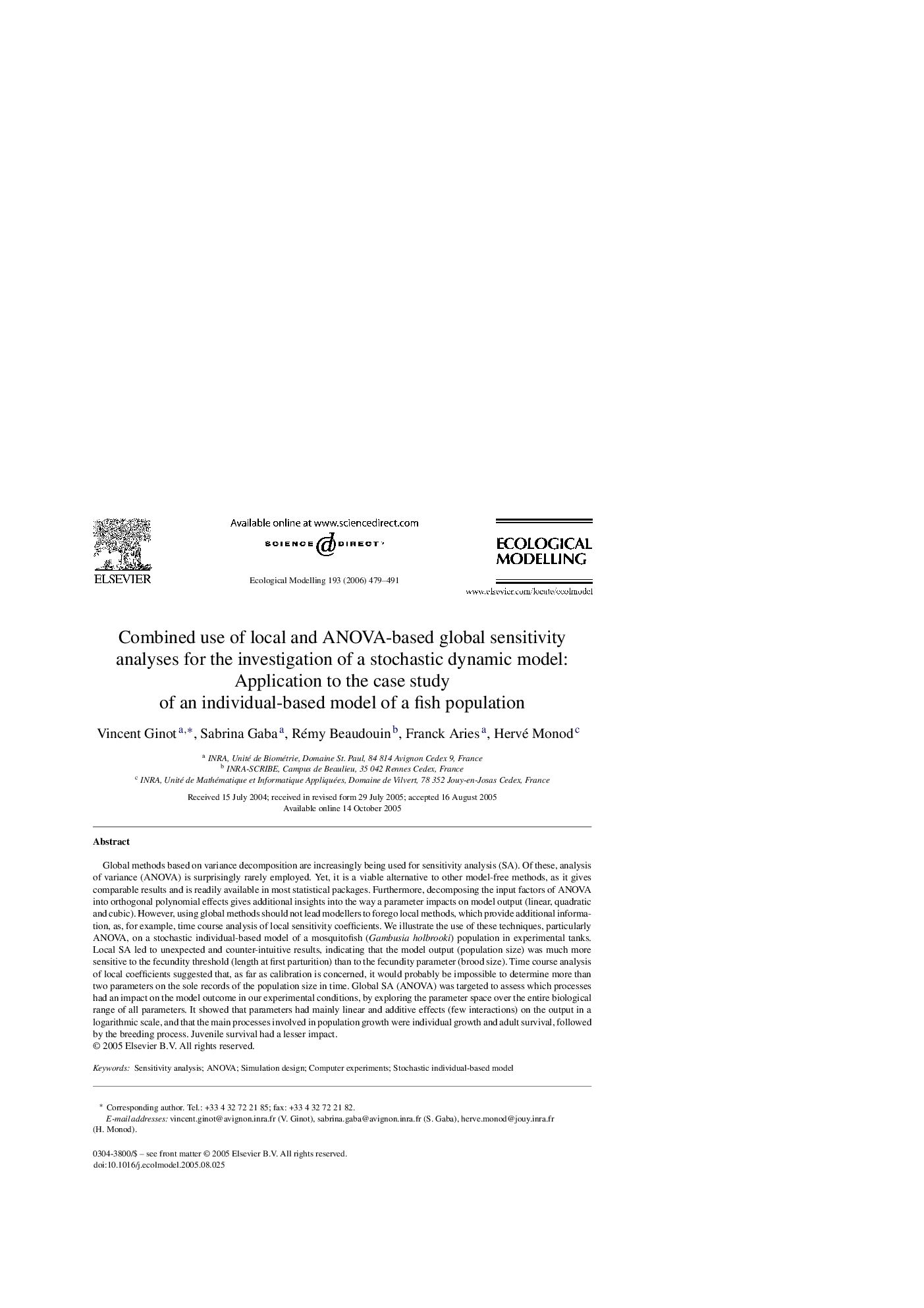| Article ID | Journal | Published Year | Pages | File Type |
|---|---|---|---|---|
| 4379252 | Ecological Modelling | 2006 | 13 Pages |
Global methods based on variance decomposition are increasingly being used for sensitivity analysis (SA). Of these, analysis of variance (ANOVA) is surprisingly rarely employed. Yet, it is a viable alternative to other model-free methods, as it gives comparable results and is readily available in most statistical packages. Furthermore, decomposing the input factors of ANOVA into orthogonal polynomial effects gives additional insights into the way a parameter impacts on model output (linear, quadratic and cubic). However, using global methods should not lead modellers to forego local methods, which provide additional information, as, for example, time course analysis of local sensitivity coefficients. We illustrate the use of these techniques, particularly ANOVA, on a stochastic individual-based model of a mosquitofish (Gambusia holbrooki) population in experimental tanks. Local SA led to unexpected and counter-intuitive results, indicating that the model output (population size) was much more sensitive to the fecundity threshold (length at first parturition) than to the fecundity parameter (brood size). Time course analysis of local coefficients suggested that, as far as calibration is concerned, it would probably be impossible to determine more than two parameters on the sole records of the population size in time. Global SA (ANOVA) was targeted to assess which processes had an impact on the model outcome in our experimental conditions, by exploring the parameter space over the entire biological range of all parameters. It showed that parameters had mainly linear and additive effects (few interactions) on the output in a logarithmic scale, and that the main processes involved in population growth were individual growth and adult survival, followed by the breeding process. Juvenile survival had a lesser impact.
